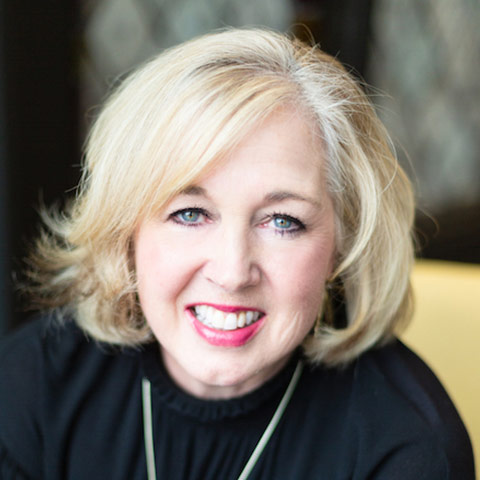On March 10, I boarded an early morning flight to New Orleans. I was scheduled to speak at a luncheon at New Orleans Baptist Theological Seminary. It was a quick trip, back and forth on one day, but something was different about the day. I saw more people wearing masks. Flights weren’t full. People were wiping down all of the surfaces on the plane. Conversations centered on a growing pandemic and how it might affect the country. In twenty-four hours everything seemed to come to a halt when the NBA suddenly shut down.
Within days of that trip, I found myself working from home, making the shift to watching church online, and scouring the aisles of every store for toilet paper. My full travel schedule of 2021 quickly unraveled, and I found myself praying and pivoting to develop new strategies of work. The dream of offering digital training for leaders quickly became a necessity, and while I had used Zoom for a few years, it was now a regular part of my daily routine. Surely this would just last a couple of months and things would return to “normal.”
But it hasn’t. I’m still working from home, and I’m still trying to be creative with strategies and ways to lead in the midst of a pandemic.
And I’m tired.
I think I realized I was susceptible to burnout over the summer when I would casually think to myself: Is all of this worth it? Am I making a difference? Why do I feel like I’m working harder than ever but not quite sure how to measure my effectiveness? The most frequent daydream was voiced one day during a meeting when I blurted out, “I think I just want to get a job at Bath and Body. It might be easier to put candles on the shelves and have a job where I don’t have to think so hard.” Everyone laughed, but there was a tinge of reality. I was tired, and I wanted to quit.
Have you had moments like this over the last few months? This week? Even today? If so, I want to encourage you to not give up. What you do in leadership—whether it’s ministry, the marketplace, or homeschooling your children remotely, matters. It matters to those you lead, and it matters to the Lord. More importantly, our heavenly Father cares about you and wants to give you rest.
Scripture gives us several accounts of leaders who were weary in the midst of difficult situations. Elijah was exhausted after his showdown on Mount Carmel (1 Kings 18–19). Moses’ arms got heavy in the fight with the Amalekites (Exodus 17). David got exhausted fighting the Philistines (2 Samuel 21). All of these incredible leaders most likely encountered days when they wanted to exchange their leadership role for something easier, even though I doubt many of them wished for a job selling perfumed bath products.
But burnout is real, and it can affect any of us. How do you recognize it? How can you not grow weary in doing good and walk forward in God’s calling on your life? Some self-examination is a good first step. Let’s consider some symptoms and whether you might be struggling in this area.
First, do your daily tasks seem harder and have you lost your joy? You may not doubt your faith in burnout, but you might feel numb. You might read your Bible, but nothing is getting through. Are you going through the motions, yet you have lost your joy and the drive you once had? Does connecting with people seem draining when it once was life giving? If so, you might be experiencing burnout.
Second, are you self-medicating to deal with your exhaustion? While drugs and alcohol are often symptoms of self-medication, other things like sleeping too much, overeating, or overworking can be signs of burnout. While I’ve never been tempted by drugs and alcohol, my recent health screening revealed I’ve comforted myself a little too much with food over the past several months.
Third, examine your need to perform or achieve. I often pride myself on a strong work ethic. I easily brag about getting up early and staying at my desk until late in the day. Even if no one sees me, my personality lends itself to performance and making sure others notice that I’m not lazy—a term I often struggle with. It has been one of the most clarifying descriptions of my weariness. Like a child that screams, “Watch me,” I want others to know I bring value to my leadership calling. If this is you, you might be experiencing burnout.
How do you break free from this? How can you recover from a year of exhaustion—whether it’s emotional, physical, spiritual, or relational? Here are some suggestions I’m incorporating in my own leadership and some new rhythms to break out of the negative thoughts of giving up and getting better.
First, realize your value is from the Lord and not from others. My rest and value comes from the Lord, and I’m reminded in Matthew 11:28-29, “Come to me, all of you who are weary and burdened, and I will give you rest. Take up my yoke and learn from me, because I am lowly and humble in heart, and you will find rest for your souls” (CSB). God loves you and is not impressed with your to-do list. Instead, He seeks a relationship with you that comforts and offers acceptance of you no matter what.
Second, lean into the Lord and spend time in His Word. The well-known missionary Hudson Taylor once said, “It doesn’t matter, really, how great the pressure is … it only matters where the pressure lies. See that it never comes between you and the Lord—then, the greater the pressure, the more it presses you to His breast.”1 If you’re experiencing burnout, this may seem like a chore but find new ways to press yourself nearer to God’s heart through Scripture. Write verses on cards and tape them to your bathroom mirror. Listen to a podcast or a Bible app where you are listening to Scripture. Journal and pray through Scripture at various times of the day or when you are tired. I recently started journaling through one of the new CSB Scripture Notebooks. There’s plenty of room to underline, highlight, and take notes of how the Lord is speaking to me through His Word.
Third, looks for ways to experience physical rest and exercise. My husband and I now take long walks each day, and sometimes we get in the car on a Saturday and explore a new state park. If you’re working from home, take an actual lunch break and eat in a different location than where you work. Turn on some worship music and give your mind a break. Try a new hobby or creative outlet. I’ll confess that I almost bought a paint-by-number kit after seeing it on social media, but instead I painted my formal dining room and redecorated my home office. My next-door neighbors have a menagerie of animals, so I sometimes take a break to feed the donkeys or watch the chickens. I’ve even pulled out music tucked away in my childhood piano and sometimes sat down and relaxed with a little classical music.
Fourth, connect with others, even if it’s over video. I’ve been more intentional about meeting coworkers for lunch since we aren’t in the office. My team now meets every two weeks to discuss a book over lunch on Zoom. I’ve celebrated bridal showers and birthdays through video and use phone apps to stay connected with family and friends. Stay accountable to someone if you are experiencing burnout and meet regularly to check-in with one another.
Fifth, fire yourself at the end of the day and rehire yourself at the beginning of the next day. If you are seriously thinking about quitting, tell yourself (and only yourself) at the end of a long day or week, “I quit.” Consider the consequences over the course of an evening and sleep on it. Get up the next morning and give yourself the job again. Maybe this will provide a new perspective, and if you need longer, take a couple of days of vacation and take longer to examine your heart. I’ve done this a handful of times over the past fifteen years, but I’ve always rehired myself quickly and without telling anyone else!
Finally, learn from your burnout and focus on cultivating gratitude. Begin a gratefulness journal and write down five things you are thankful for that day—no matter how insignificant they may seem.
So dear leader, if you’re tired, don’t give up. Persevere and be steadfast, just as Paul encouraged us in 1 Corinthians 15:58, “Therefore, my dear brothers and sisters, be steadfast, immovable, always excelling in the Lord’s work, because you know that your labor in the Lord is not in vain” (CSB).
If you are experiencing more than burnout and have symptoms of depression, please seek the help of a trusted counselor and/or medical doctor.

Kelly D. King is the Manager of Magazines/Devotional Publishing and Women’s Ministry Training for Lifeway Christian Resources. She is the author of Ministry to Women: The Essential Guide for Leading Women in the Local Church. You can hear Kelly at Lifeway’s You Lead events that are held in several cities around the country or listen to her co-host the Marked Podcast with Elizabeth Hyndman.
1. Hudson Taylor, as quoted by Dr. and Mrs. Howard Taylor in Hudson Taylor’s Spiritual Secret (Chicago: Moody Publishers, 1989), 153.

